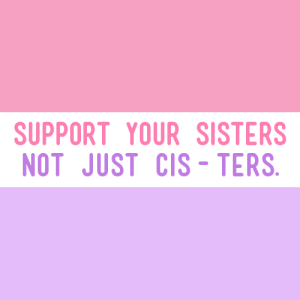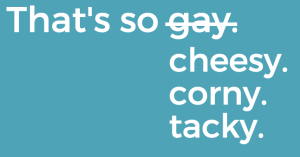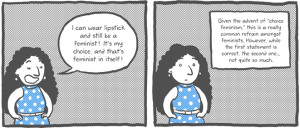Hey, you all. This is another video I’m doing in a series with Everyday Feminism, which is a website dedicated to helping you stand up to and break down everyday oppression.
In this video I want to discuss the question of female privilege. To be clear, I’m not in this video talking about cis privilege that is the privilege that cisgender people have in a society which oppresses trans and gender nonconforming people.
I’m talking about something different, something I’m often asked about or frankly told about in my common section and that is the elusive female privilege.
Firstly, why do people think that this is a thing? The main arguments I see about this come from men, men who take issue with certain social norms, or stats, or even legal structures which seem to give women advantages over men. Think for example of the very often cited stat about women being more likely to receive custody of children in a divorce case.
These kinds of perceive inequalities are often told to me as proof, proof that women have privilege in their being women. That being born a woman means that we will have it easier than men in a lot of ways because people hold doors for us and pay for our dinner. Privilege, right? Wrong.
Here’s why female privilege is not as straightforward as many men would like you to think.
The first thing is what is perceived as female privilege usually refers to some benefit in the private or domestic sphere.
Yes, maybe we do have to pay for dinner dates less often due to social norms, norms we did not create I might add. Yes, we often receive custody of children also due to social norms surrounding motherhood and domestic labor, which we did not create and which do not serve women well in a larger sense.
Yes, we are not as easily deemed predators when we attend a children’s playground. This seems to come up a lot for men’s rights activists. I would also attribute that to social norms regarding how normal it is in society for a woman to spend time with her children over a man.
I’m not saying it’s right or better that women are assumed to be better at parenting or less predatory or that we should never pay for dinner. None of those things. In fact, it hinders equality for all genders to maintain these norms which push us into these neat little boxes in which we don’t all fit. What I am saying though is that these privileges all exist in a domestic or private sphere.
While men are more easily accepted as the head of the company, or of a family, or a country, women are indeed more easily accepted as nurturing, submissive and inferior.
The second point is chivalry can die. Really, men, if you’re going to resent women because you pay for our dinner or open our doors, then just stop doing it. We’re not forcing you to buy us drinks. While you might think that being treated like a lady is a privilege, it really doesn’t affect us nearly as much as you think it does. Your privileges as a man are widespread and are mostly invisible to you.
What you might call my privilege like getting a free meal often comes with harmful strings attached like the expectation that I’ll sleep with you. When it doesn’t, it’s simply a free meal. No institutionalized power included.
Three, one interesting notion of female privilege is regarding how we’re taught to express emotions. Women, it’s true, are not chastised in the same way that men are when we show signs of weakness or emotions. This is a result of patriarchal norms regarding what makes someone a real man.
These are not norms that women created. In fact, they use women and femaleness as the ultimate negation of manhood. Man up. Don’t be a pussy. Those kinds of things are ways of telling men to move farther away from the concept of womanhood, so to remove anything weak about them because women equal weak and emotional, and men are not allowed to be either of those things and still remain men under patriarchy.
This is a harmful notion that both reinforces women as a lesser gender and ask men to carry an unfair burden in order to maintain their manhood. No one wins in this scenario.
Finally, female privilege is having no pressure to be the sole or primary breadwinner in the family. I’m told this one a lot, too. The perception that women can just rely on their husband for monetary support is harmful to both men and women.
For men, it reinforces the social norm that men have to be the breadwinner in the family. This is obviously a lot of responsibility. Not living up to it can lead to other social stigma, which is unfair and unhelpful. For women, it actually can mean structural bias against us. Women are perceived as the homemaker and are therefore looked over for jobs and promotions because of these notion that we can just rely on our husband’s salary.
This perceived privilege actually hurts women who are career-driven because studies show that companies are less likely to hire a female candidate due to the perceived risk of them getting pregnant and needing to go home and nurture the child. Even if we don’t want kids, our status as women means that we are assumed to be that nurturing stereotype which might just decide to stay home and stop working. That works against us as women.
Female privilege is ultimately a surface privilege. It might give women some small benefits like free food or the ability to cry in public without it threatening our womanhood, but it doesn’t hold any real structural or substantial power.
We are placed on a pedestal due to stereotypes surrounding us as the fairer gentler sex. Though we might seem privilege above men in some respects, this pedestal does not lend itself to the many varied lives that women want and deserve to live. Some of us want children and to stay home. Others want high stakes careers and no kids.
This pedestal you got us on leaves us very little room to express our sexuality freely or want really anything outside of the norms we’ve been told our whole lives.
Privilege is about the way the society accommodates you. Society does not accommodate women when we step off of our feminine pedestal and that is not privilege. It’s sexism.
I hope this is helpful. I’ll see you all next time.



















